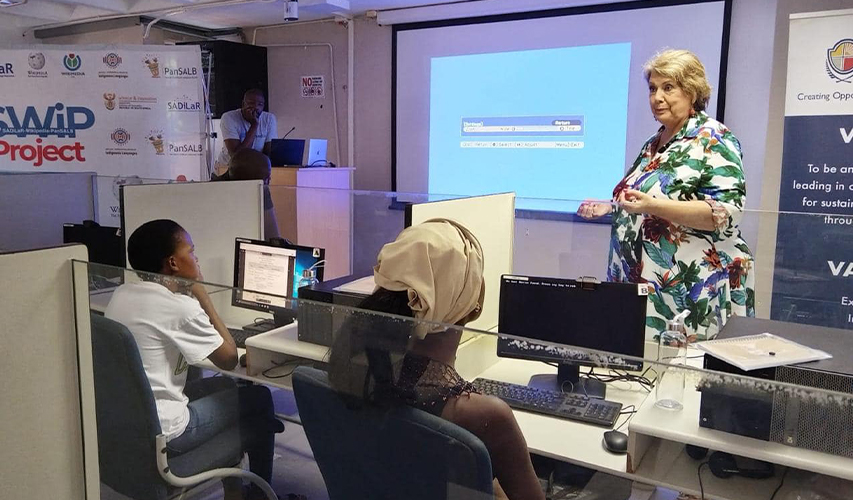The initiative aims to bring together communities of language practice, such as university language directorates and language entities, to advance and celebrate the use of South African languages. It encourages language communities of practice to actively participate in contributing to the free encyclopedia, Wikipedia.
This workshop specifically focused on the isiNdebele language, as it is the only language in South Africa that has not yet been represented on Wikipedia. Professor Eurika Jansen van Vuuren, Programme Leader at the School of Education at UMP, stated, "IsiNdebele cannot be preserved, protected, and promoted by anyone other than its speakers." She further expressed gratitude towards the SWIP initiative for digitizing isiNdebele and other African languages to preserve and promote them.
UMP Lecturer in isiNdebele and event coordinator, Mr William Jiyana, added that the training marks a historic moment for UMP and its isiNdebele students. "For the first time in history, isiNdebele has been on an international platform and digitized. This will enable our students to complete assignments and research as there will be sufficient information available online," he said.
Mr Jiyana also highlighted the importance of digitizing isiNdebele, noting that it would provide researchers, students, and teachers with access to a wider range of resources. "Additionally, it will offer a variety of options for students to learn the language, such as online courses and virtual classrooms."
 Professor Eurika Jansen van Vuuren, Programme Leader at the School of Education during the workshop.
Professor Eurika Jansen van Vuuren, Programme Leader at the School of Education during the workshop.
The President of Wikimedia ZA Foundation Chief Executive Officer, Mr Bobby Shabangu praised the workshop's significance, especially for languages at risk of extinction like isiNdebele. "A total of 65 articles emerged from the two-day workshop we held, indicating that a language that has long been overlooked is yearning for recognition. I am confident that the trainees will continue to write and contribute to Wikipedia for years to come."
In the future, SWiP will also cover siSwati and Sepedi, which are already featured on Wikipedia but require additional contributions. Cycle 2 of the project will focus on Training the Trainer events, enabling the participants to host their events at the University of Mpumalanga and in local communities. These events will concentrate on creating content for SWiP and engaging with communities to raise awareness of the project and encourage contributions, creating a sustainable ecosystem of content contributors for SWIP's long-term success.
The event was made possible by the volunteer contributions of 18 UMP Bachelor of Education (BEd) Foundation Phase students specializing in isiNdebele. The remaining 10 participants were drawn from a group of authors and language practitioners who are stakeholders from the local community of Siyabuswa.
Story by Cleopatra Makhaga. Pictures supplied.